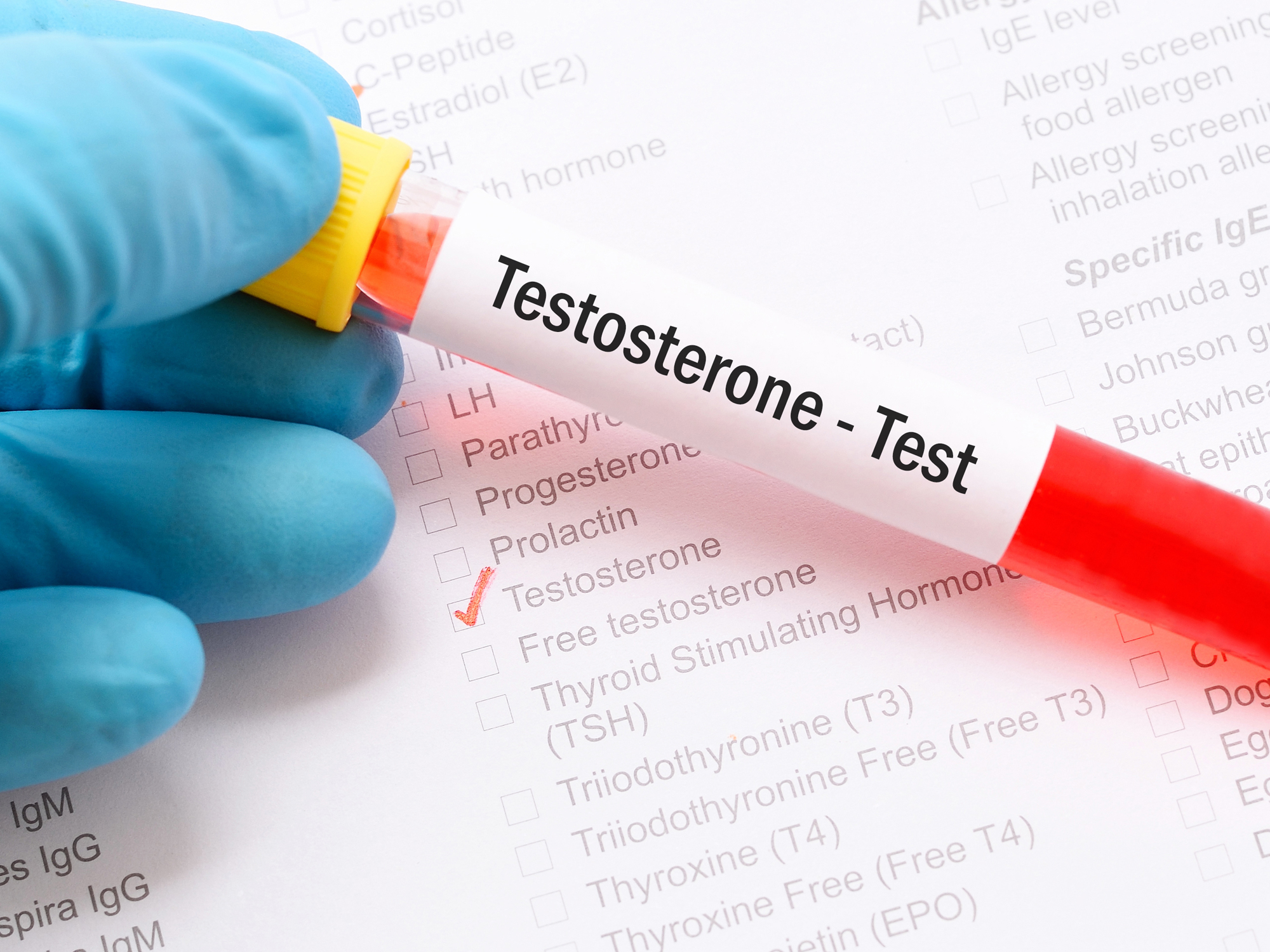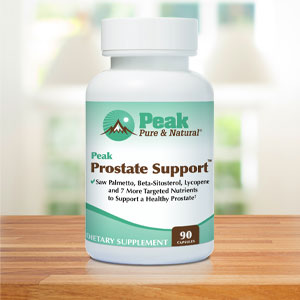Get Easy Health Digest™ in your inbox and don’t miss a thing when you subscribe today. Plus, get the free bonus report, Mother Nature’s Tips, Tricks and Remedies for Cholesterol, Blood Pressure & Blood Sugar as my way of saying welcome to the community!
How much do testosterone levels really matter?

Most of us have probably heard the commercials and read the ads and articles about how reaching higher testosterone levels is a big achievement… especially for older men, because it supposedly means greater sexual performance, sex drive, and self-esteem.
But is much of this just marketing hype designed to get men into testosterone replacement therapy?
Do testosterone levels really matter that much?
It appears they don’t in many cases, and here’s why.
Is there better than ‘normal’?
First of all, the commercials and ads don’t tell you that the normal levels of testosterone for men cover a very wide range, from about 300 to 1,000 nanograms per deciliter (ng/dL) of blood.
Men who raise their testosterone from 400 to 600 ng/dL may not experience much of an improvement; that is, an increase from one number in the normal range to another is not a big deal, according to endocrinologist Dr. Shalender Bhasin, who also teaches at Harvard Medical School. Men who see the best improvement are those who boost their T levels from the below-normal range to normal.
For example, the results of a multicenter study published in JAMA showed that men whose testosterone levels rose from about 230 to 500 showed an improvement in libido. But there was no difference among men who boosted their levels from 300 to 500.
This suggests men who are already within the normal range should not expect any significant improvement if they take steps to enhance their T levels when it comes to sex drive.
But what about boosting testosterone levels so men can experience an improvement in muscle size?
This is attractive to men who are engaged in bodybuilding, and men can expect to see positive results regardless of where their T levels were before they made attempts to increase them. However, use of testosterone replacement does not seem to help frail older men when it comes to muscle strength where it matters to them, such as being able to walk farther or get out of chairs easier.
What’s the story on low testosterone in men?
Testosterone levels naturally begin to decline around age 30 in men, and the drop is about 1 percent per year. Approximately 5 percent of men in the age range of 50 to 59 have low T levels accompanied by symptoms of fatigue, lack of sex drive, and loss of muscle strength, according to a few small studies. Yet if you believe the ads, there are many more men who could benefit from taking testosterone replacement therapy.
The Food and Drug Administration has stated that testosterone replacement should be reserved for the few men who have T levels less than 300 ng/dL, including those who have a pituitary tumor, damaged testicles, or other medical conditions that drive T levels down.
That is, men who are truly deficient in testosterone because of a medical situation have a legitimate reason to take testosterone therapy and help restore their hormone levels. In fact, insurance companies generally require doctors to provide two morning testosterone readings showing values less than 300 ng/dL, plus symptoms of low testosterone, before they will agree to reimburse men for this treatment strategy.
In addition, there are cases in which testosterone replacement is not recommended, such as men who have experienced a heart attack or stroke within the last six months or who are at high risk for prostate cancer.
Yet some doctors will write a prescription for testosterone replacement for men who are in the normal range if they complain of fatigue and low sex drive. Sometimes the extra hormone boost works; other times it doesn’t produce any results. For some men who say they feel better, there is also the possibility that it is a placebo effect. The problem is, doctors can only take the word of their patients if they say there is an improvement.
How accurate are testosterone readings?
Testosterone readings can vary significantly depending on the time of day, the age of the individual, and other factors such as body fat, exercise, and lack of sleep.
For example, testosterone levels are usually highest around 8 A and lowest around 8 PM. The same man who has his T levels checked at 8 AM in the doctor’s office or at the last appointment of the day at 5 PM will show different levels. Depending on his age, the reading may be 200 points higher in the AM than in the PM (40-year-old men may show such a dramatic difference when compared with a 70-year-old man).
Other factors that can have an impact on testosterone levels (causing them to raise or lower) include participation in vigorous exercise (e.g., cycling long distance), obesity, having the flu or other viral illnesses, insufficient sleep, chronic alcohol abuse, and even cheering on your favorite sports team (but levels return to normal within 30 minutes of the last factor).
It’s also important to note that every lab that tests for testosterone has its own methods of calculating the results, and the differences can be significant between one lab and another. You may not have any control over which lab our samples are sent to, but you can discuss the results and the typical normal ranges of that lab with your healthcare provider.
Sources:
- Basaria S et al. “Effects of testosterone administration for 3 years on subclinical atherosclerosis progression in older men with low or low-normal testosterone levels: a randomized clinical trial.” — JAMA 2015 Aug 11; 314(6): 570-81
- Bernhardt PC et al. “Testosterone changes during vicarious experiences of winning and losing among fans at sporting events.” — Physiology & Behavior 1998 Aug; 65(1): 59-62













